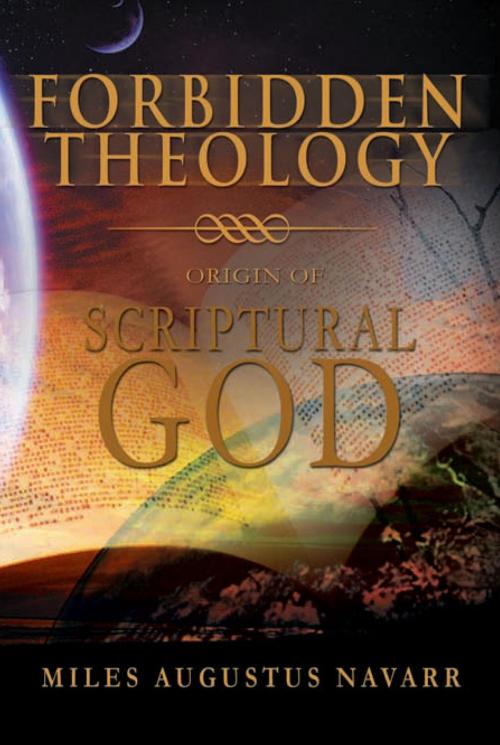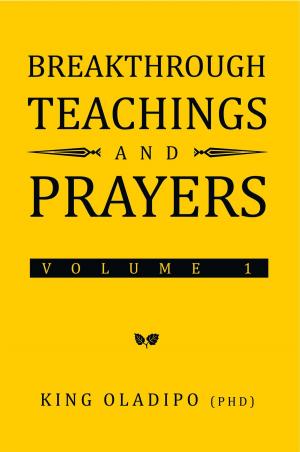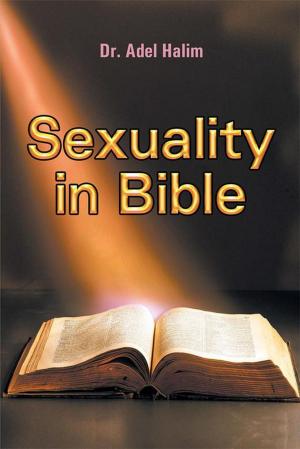| Author: | Miles Augustus Navarr | ISBN: | 9781477117545 |
| Publisher: | Xlibris UK | Publication: | August 9, 2012 |
| Imprint: | Xlibris UK | Language: | English |
| Author: | Miles Augustus Navarr |
| ISBN: | 9781477117545 |
| Publisher: | Xlibris UK |
| Publication: | August 9, 2012 |
| Imprint: | Xlibris UK |
| Language: | English |
Over 75% of the people who live on this planet are followers of one of the three major monotheistic religions. They all consider Abraham as the father of their race and religion. They all believe in one singular, all powerful, all knowing benevolent god. The Hebrew call him Yahweh, the Christians refer to him as Father or Lord and Muslims call him Allah, and yet millions and millions of people have been murdered, maimed and tortured by the followers of this single entity to prove that their version of this single god is better than the other two versions. Sounds ridiculous, and yet sadly enough, more people have died in the name of religion than any other cause in the history of humanity.
Each and every one of us at one time or another has asked or thought about such fundamental questions as,
Is there a God?
Where did humans come from?
Why out of millions of species on earth, only humans reached this level of sophistication?
Is there a life after death?
Is there a purpose to life?
Why are we here?
Are the scriptures truly the words of god?
More importantly, is there any way we could find answers to such questions?
The fact is, the answer to most of these questions, and many more, that we thought unanswerable, have been written down on clay tablets by our ancient ancestors who lived in Mesopotamia over 7000 years ago. These records are readily available to those who are willing to step outside the dogmatic belief system of the establishment, and are prepared, mentally and spiritually, to tolerate a totally different rendering of the oldest written historical records about mankinds origin, purpose and the truth about god, our maker.
The subject matter of this book is an attempt to investigate the circumstances under which Mankind was made, and to trace the beginning and development of such concerns as the emergence of the concept of god and the formation of what later became known as religion. This is done primarily by relying on our scriptural texts, particularly the Old Testament, as well as other ancient manuscripts such as Sumerian, Akkadian and Babylonian Creation and Genesis epics.
The first chapter begins by examining the behaviour, commands and instructions given by Yahweh to his chosen people. These commands and instructions are then evaluated and compared with basic accepted human rights standards practised and observed by almost all communities and societies, past and present.
The question is then asked, How could an entity, powerful enough to have created the entire universe, issue such cruel and sadistic commands against some of his own creations?
Furthermore, Yahwehs behaviour is decidedly pro Hebrew, and shows no regards or thought about non Hebrew masses. How could the universal god show such bias towards a tiny fraction of his creatures, with total disregard for the rest?
Finally the characteristics and personalities of Yahweh is analysed by scrutinising his behaviour, actions and directives as stated in the Old Testament, before examining the god of Christianity.
In investigating the role and characteristics of God in Christianity, the first thing that immediately becomes apparent is the absence of a prominent role for God the Father, as we had witnessed in Judaism. The Christians, or more specifically Saint Paul, who was the founder and designer of Christianity as we know it today, in order to distance his creation from the Hebrews and religion of Yahweh, invented a new Godhead and named him Jesus Christ (Ancient Greek: Isous). Born of a virgin, with powers to heal the sick, give sight to the blind and even raise the dead, who was crucified but resurrected three days later. These were all characteristics borrowed from various religions and cults prevalent at the time in the Levant, from Mithraism to the cult of Apoll
Over 75% of the people who live on this planet are followers of one of the three major monotheistic religions. They all consider Abraham as the father of their race and religion. They all believe in one singular, all powerful, all knowing benevolent god. The Hebrew call him Yahweh, the Christians refer to him as Father or Lord and Muslims call him Allah, and yet millions and millions of people have been murdered, maimed and tortured by the followers of this single entity to prove that their version of this single god is better than the other two versions. Sounds ridiculous, and yet sadly enough, more people have died in the name of religion than any other cause in the history of humanity.
Each and every one of us at one time or another has asked or thought about such fundamental questions as,
Is there a God?
Where did humans come from?
Why out of millions of species on earth, only humans reached this level of sophistication?
Is there a life after death?
Is there a purpose to life?
Why are we here?
Are the scriptures truly the words of god?
More importantly, is there any way we could find answers to such questions?
The fact is, the answer to most of these questions, and many more, that we thought unanswerable, have been written down on clay tablets by our ancient ancestors who lived in Mesopotamia over 7000 years ago. These records are readily available to those who are willing to step outside the dogmatic belief system of the establishment, and are prepared, mentally and spiritually, to tolerate a totally different rendering of the oldest written historical records about mankinds origin, purpose and the truth about god, our maker.
The subject matter of this book is an attempt to investigate the circumstances under which Mankind was made, and to trace the beginning and development of such concerns as the emergence of the concept of god and the formation of what later became known as religion. This is done primarily by relying on our scriptural texts, particularly the Old Testament, as well as other ancient manuscripts such as Sumerian, Akkadian and Babylonian Creation and Genesis epics.
The first chapter begins by examining the behaviour, commands and instructions given by Yahweh to his chosen people. These commands and instructions are then evaluated and compared with basic accepted human rights standards practised and observed by almost all communities and societies, past and present.
The question is then asked, How could an entity, powerful enough to have created the entire universe, issue such cruel and sadistic commands against some of his own creations?
Furthermore, Yahwehs behaviour is decidedly pro Hebrew, and shows no regards or thought about non Hebrew masses. How could the universal god show such bias towards a tiny fraction of his creatures, with total disregard for the rest?
Finally the characteristics and personalities of Yahweh is analysed by scrutinising his behaviour, actions and directives as stated in the Old Testament, before examining the god of Christianity.
In investigating the role and characteristics of God in Christianity, the first thing that immediately becomes apparent is the absence of a prominent role for God the Father, as we had witnessed in Judaism. The Christians, or more specifically Saint Paul, who was the founder and designer of Christianity as we know it today, in order to distance his creation from the Hebrews and religion of Yahweh, invented a new Godhead and named him Jesus Christ (Ancient Greek: Isous). Born of a virgin, with powers to heal the sick, give sight to the blind and even raise the dead, who was crucified but resurrected three days later. These were all characteristics borrowed from various religions and cults prevalent at the time in the Levant, from Mithraism to the cult of Apoll















